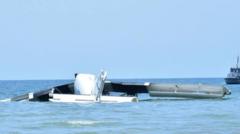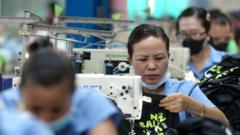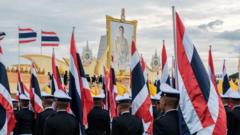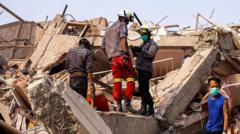Paul Chambers, an American lecturer at Naresuan University, has been released on bail after being charged with insulting Thailand's monarchy, underscoring ongoing tensions around free speech in the country.
American Scholar Paul Chambers Freed on Bail Amid Thai Monarchy Insult Charges

American Scholar Paul Chambers Freed on Bail Amid Thai Monarchy Insult Charges
Bail granted for American academic Paul Chambers, highlighting concerns over strict lèse-majesté laws in Thailand
A Thai court has granted bail to Paul Chambers, an American academic detained for allegedly insulting the Thai monarchy under the nation's strict lèse-majesté laws. This decision prompted relief among U.S. officials who had expressed concerns over his well-being and the implications of his arrest.
Chambers, a lecturer in civil-military relations at Naresuan University, was jailed earlier this week after being accused of defamation against the king. His legal representative, Akarachai Chaimaneekarakate from Thai Lawyers for Human Rights, confirmed that the authorities had confiscated Chambers’ passport and fitted him with an ankle monitor while they deliberate on potential charges.
Initially, his bail requests were denied, but an appeals court later intervened, granting him release on bail amounting to 300,000 baht (approximately $8,800). Chambers has firmly denied the allegations against him, asserting he has not disseminated any material that would be construed as defamatory toward the monarchy.
With his visa revoked, Chambers now faces additional complications, including the risk of deportation. Under the imposed restrictions, he is not allowed to leave Thailand without court approval and is required to report to immigration authorities monthly.
Thailand's lèse-majesté laws rank among the severest globally, where offenses can result in imprisonment from a minimum of three years to a maximum of 15. Although such charges predominantly affect Thai nationals, the detention of a foreigner like Chambers is a rare occurrence and raises significant concerns regarding freedom of speech and human rights in the region.























